Your first question is probably, “what is resveratrol?”
Resveratrol is a polyphenol, a part of a group of compounds that work similarly to an antioxidant. This polyphenol packs a lot of punch for our skin, and possibly for a host of other medical issues. While a lot of the results aren’t in, scientists continue testing resveratrol to find new ways to use this powerful polyphenol.
Plants produce resveratrol as part of their defense against fungus, stress, injury, infection, or ultraviolet rays. It is found in many foods we consume, including:
- The skins of red grapes
- Cranberries
- Blueberries
- Peanuts
- Pistachios
- Cocoa
- Dark chocolate
Red wine makes the list too, and due to the number of grapes used per bottle, it has a higher concentration of resveratrol than the other foods listed. But, beware…This is not a free ticket to consume large quantities of red wine, as too much wine can pose other health risks.
Another huge source of resveratrol is found in the plant Japanese Knotweed. This plant contains high levels of trans-resveratrol, more so than grapes, and has become the favored source for resveratrol. Japanese Knotweed has been traditionally used in Japanese and Chinese medicines for its benefits in circulatory and gastrointestinal health along with treating dermatitis.
As far as increasing these foods in our diet or taking resveratrol as a supplement, well, the jury is still out. But, one thing is for sure, the addition of resveratrol in cosmetics has been proven to be helpful to our skin. Used topically, resveratrol will aid your skin in the fight against aging.
Let’s talk about some reasons to start using resveratrol…
Anti-Aging Benefits
Our skin’s youthful appearance deteriorates over time, due to our bodies aging and also due to outside factors, like air pollution and UV exposure. While our bodies work hard to defend themselves, the free radicals show up and cause damage. Free radicals can be produced within our bodies, or introduced from outside sources, like sun exposure, toxins, and pollution.
Applied topically, resveratrol can fight those free radicals better than some of the other ingredients in our skincare creams and serums. So, resveratrol does two things to combat the aging process of our skin:
- The antioxidant ability of resveratrol is not only potent but also efficient. It can fight free radicals by forming soluble, complex molecules that, when mixed with specific metal ions, inactivates the ions from forming free radicals.
- Resveratrol can also stimulate the increase of fibroblasts, which contributes to an increase in collagen production. Collagen and elastin are what keep our skin looking youthful and vibrant.
Resveratrol also has been proven to slow down the process of photoaging; premature aging of the skin due to overexposure to the sun and unnatural UV sources such as tanning beds.
Most of us are doing what we can to combat the signs of aging: keeping up with our daily skincare routines, wearing our sunscreen, exercising, and trying to eat as healthy as possible with our green tea and green leafy vegetables.
With the addition of resveratrol in our topical skincare, our fight against aging skin and free radicals just got a little easier.
Vine Vera, a global skincare brand started in 2012, has become one of the leaders of luxury skin products for men and women with the use of its main ingredient, resveratrol. The luxury brand has ten different collections to choose from depending upon your skin issues. Each skincare collection created by Vine Vera uses resveratrol formulated with nourishing ingredients, including essential oils, natural extracts, vitamins, minerals, nutrients, and antioxidants. Decelerating the signs of aging while indulging in the luxury face and body products of Vine Vera has never been so easy.
https://www.instagram.com/p/B3RxzHtjQYH/?utm_source=ig_web_copy_link
What else can resveratrol do for us?
Anti-Inflammatory and Antimicrobial
When resveratrol is applied topically, it can also act as a calming agent to our skin while reducing redness.
The antimicrobial properties in resveratrol also make it a promising acne treatment. It inhibits the growth of acne-causing bacteria while calming the skin due to acne inflammation and redness.
A published study in 2014 found that when resveratrol is combined with benzoyl peroxide, it has an even more significant effect on cutting down the bacteria than either one of the ingredients working on its own.
While benzoyl peroxide is effective at treating acne, it can often dry and irritate the skin. Resveratrol doesn’t do so well at getting rid of the acne, but when mixed with the benzoyl peroxide, it can prevent more growth of the bacteria that causes acne, and, as said before, it calms the skin.
Another promising aspect of resveratrol is the ability to lighten dark spots and achieve more even skin tones. While more studies need to be completed on the effects of resveratrol and hyperpigmentation disorders, the future is looking brighter.
Anti-Depressant Effects
A recent study out of the University of Buffalo found that resveratrol may help patients suffering from anxiety and depression. According to the study, resveratrol is able to close off a depression causing enzyme in the brain.
Reservatrol may turn out to be a great, natural alternative to some of the current medications prescribed to patients for depression and anxiety.
If you are suffering from anxiety or depression, check with your doctor before trying resveratrol.
Immune System
Resveratrol is also being studied for its effects on boosting the immune system. When combined with a healthy lifestyle, including a balanced diet and regular exercise, resveratrol can help maintain a healthy immune system.
Resveratrol combats against metabolic oxidative stress that occurs when there is an imbalance in our bodies: too many free radicals, and not enough antioxidants. Resveratrol helps to decrease oxidative stress and reduce inflammation.
In short, resveratrol may help battle illnesses such as nasal congestion and the common cold to more serious respiratory infections. It may also help control an overactive immune system, and is gentle for those who are currently suffering from autoimmune conditions.
Heart Health
Enjoying a glass of wine each day may indeed help your heart health, but keep in mind that too much alcohol can cause damage to your heart and general health.
The resveratrol found in your favorite wine may be a protector of the blood vessels that protect your heart by reducing LDL, low-density lipoprotein, which is considered the bad form of cholesterol, as well as prevent blood clots.
But, to be clear, while resveratrol may help your heart stay healthy by yielding its protective armor against LDL and blood clots, which lowers your risk of heart disease, resveratrol has not been linked to preventing heart disease.
Still Being Studied…
Over 12,000 scientific studies have been conducted on resveratrol, and many more will likely follow. While the results from many of these studies have helped resveratrol become one of the most popular supplements, there are still many questions as to whether they may help, hinder, heal, or harm.
There is a lot of information out there that can be a little confusing about the benefits of resveratrol concerning the prevention of life-threatening diseases. While resveratrol has not been proven to prevent any of these diseases, it may offer you some help with your defense:
- Alzheimer’s Disease – resveratrol may help protect the nerve cells from damage and fight the plaque, which is a hallmark of the disease.
- Diabetes – resveratrol may prevent insulin resistance, a condition that can lead to diabetes.
- Cancer – resveratrol may hinder the spread of cancer due to its lessening of cell division and may slow down or prevent tumor growth.
The influence resveratrol has on other medical conditions is still being studied. While there is no conclusive evidence yet, there is a chance that it may have some potential in treating people suffering from arthritis and joint pain, liver diseases, and Huntington’s disease and other neurological disorders.
Research is still being conducted on resveratrol, so it’s too early to know everything it can do for our bodies. One thing is for sure; this little polyphenol has a lot of potential.
Resveratrol Supplements
There are mixed reviews on whether resveratrol supplements can help you ward off potential life-threatening illnesses, or even be beneficial when taken orally. While some studies show improvements in skin conditions, other experts do not recommend resveratrol supplements for disease prevention or anti-aging. Bottom line – there is currently not enough data to know the long term effects of resveratrol as a daily supplement.
And, it could potentially be harmful if you have certain medical conditions or taking medications.
You should not take resveratrol supplements if you are:
- Pregnant or Breastfeeding
- Have any blood disorders
- Taking antiplatelet medication
- Avoid giving to children
- Hormone-sensitive cancer
- Two weeks before any surgery
Resveratrol supplements are not regulated by the Food and Drug Administration (FDA), so this makes it difficult to know if what you are purchasing is useful and if the dosage is correct for your needs. Some recommended dosages are much lower than the amount used during case studies. As always, please speak with your physician before starting any new supplements.
Resveratrol may indeed be our wonder warrior for many of the current medical conditions that afflict our world. Until more research is conducted, we can only wait and hope while the experts work diligently to find new ways to weave resveratrol into preventative medicine and cures.
Luckily, we do know that resveratrol can help fight against anti-aging and other skin issues when applied topically in skin care products. Taking some time looking for the best products to fit your needs, while working with your dermatologist, you shouldn’t have any issues keeping your skin healthy and vibrant while protecting it from damaging elements.
As far as the red wine goes, enjoy your daily glass, but also remember the berries and nuts. And maybe some dark chocolate too. Everything in moderation, along with a balanced diet and plenty of exercise. Cheers to a fun and healthy future!

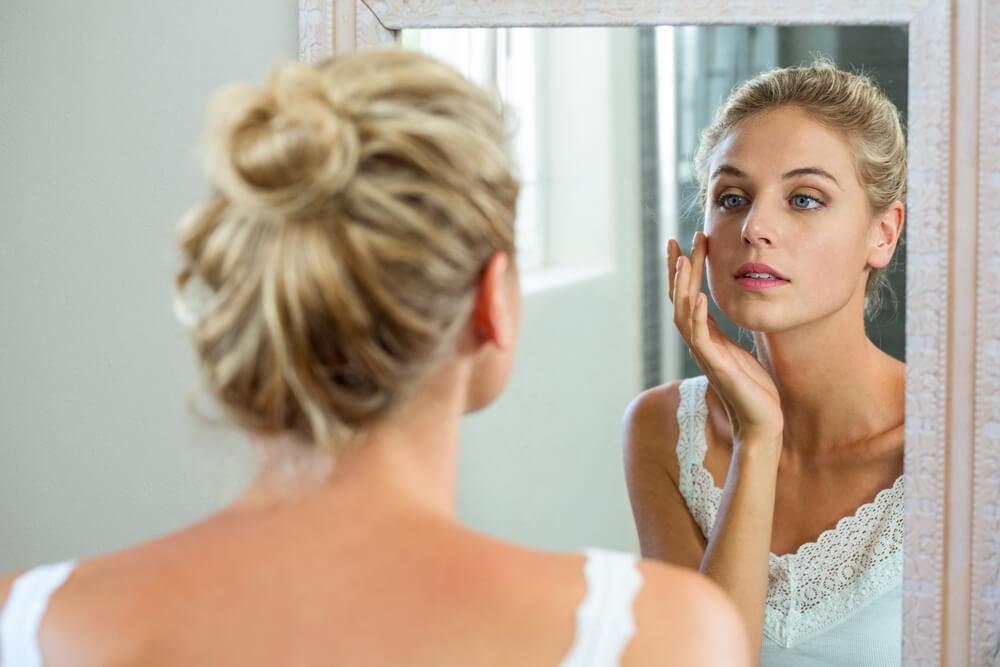
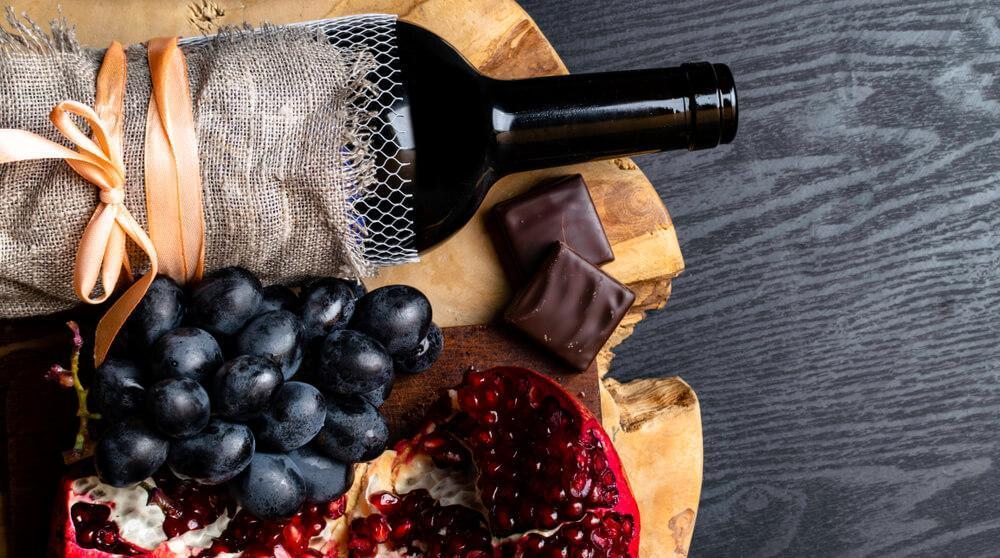
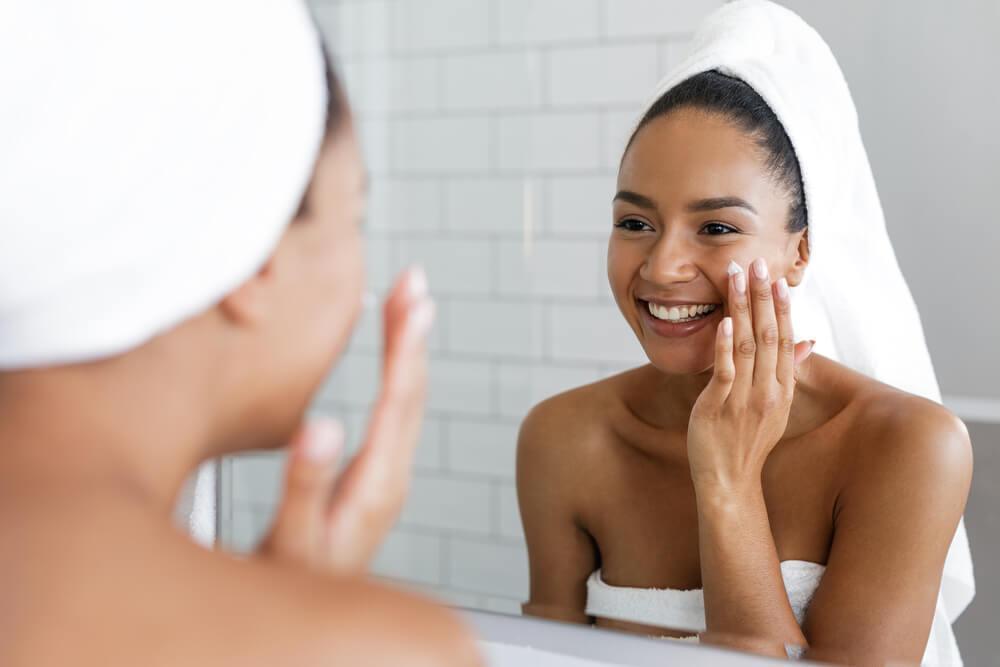
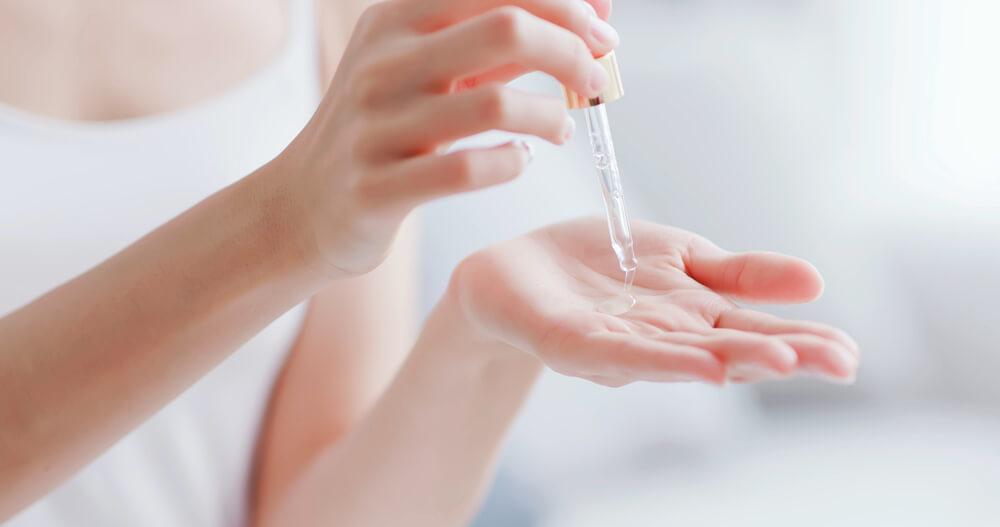
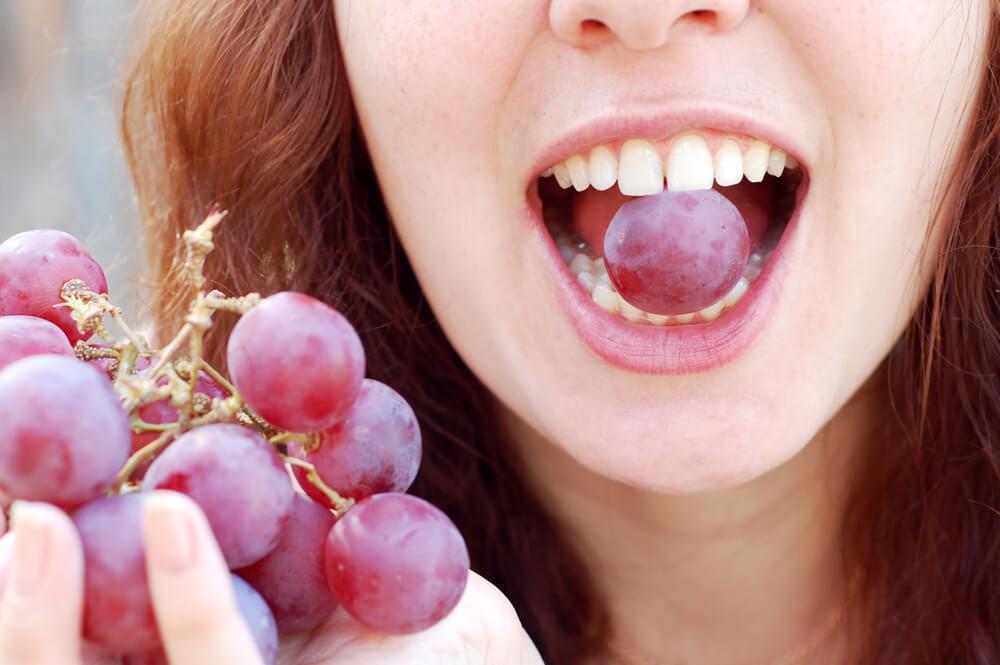
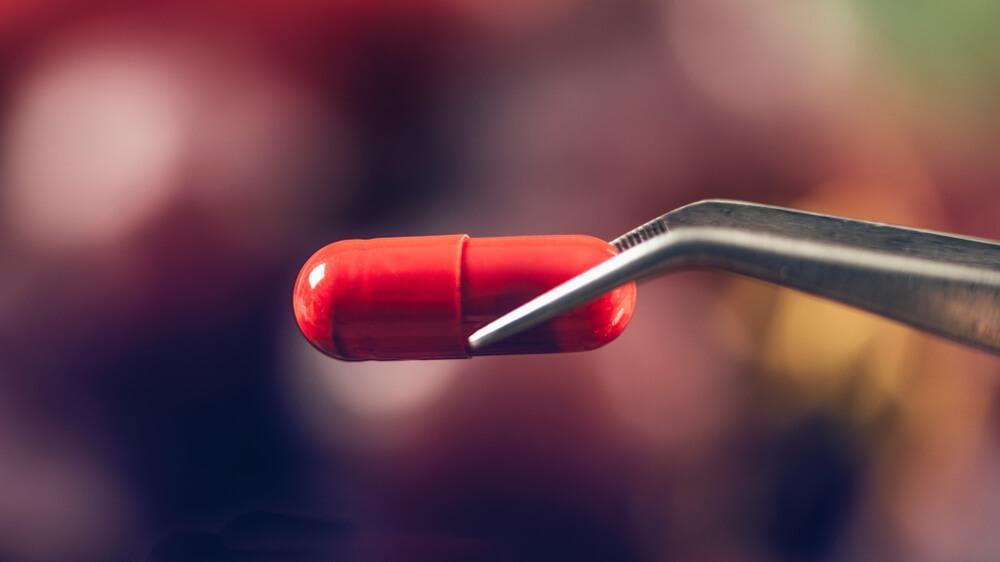
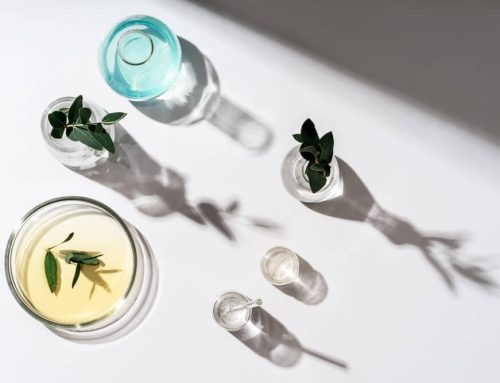
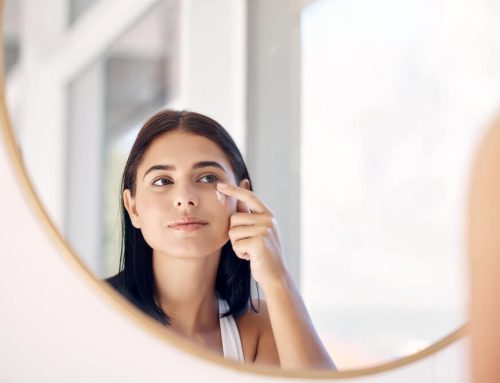
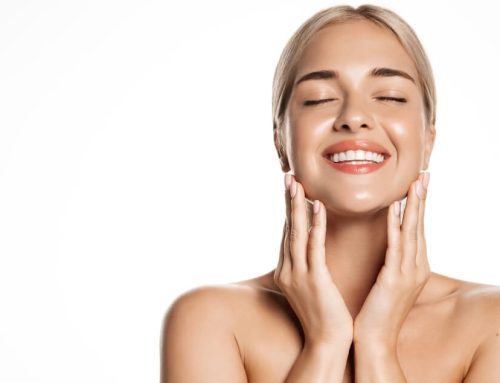

Leave A Comment